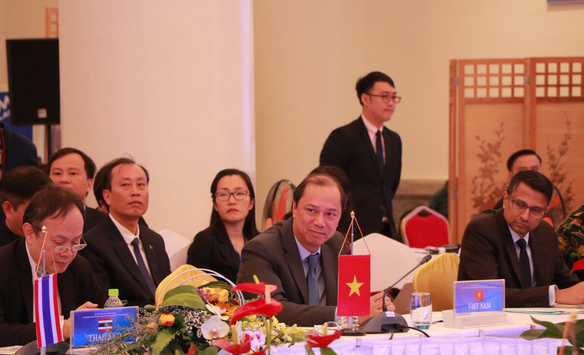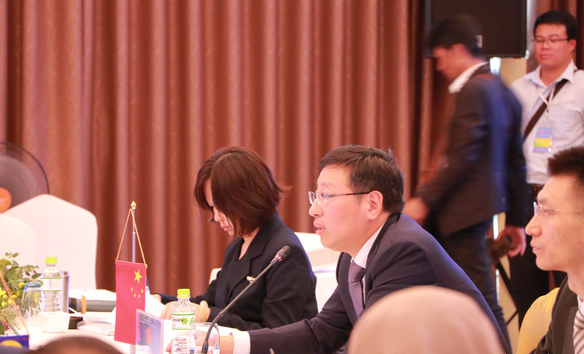Chinese illegal activities hinder COC negotiation process: Vietnamese diplomat
This is not the first time Vietnam expressed concerns about China’s violations in the South China Sea.
Hanoi has said that Beijing, with activities that violate international law, has been harming peace and security in the region and hindering the negotiation process of the ASEAN-China Code of Conduct (COC) in the South China Sea.
| Vietnamese Deputy Minister of Foreign Affairs Nguyen Quoc Dung. Photo: Tuoi Tre |
Vietnamese Deputy Minister of Foreign Affairs Nguyen Quoc Dung made the statement at the 18th ASEAN-China Senior Officials’ Meeting (SOM) held in Vietnam’s Da Lat on October 15, local media reported.
The Vietnamese diplomat stressed the importance of the implementation of the Declaration on the Conduct of Parties in the South China Sea (DOC) and the negotiations of COC which will enable related parties to act in accordance with international law and the United Nations Convention on the Law of the Sea (UNCLOS), helping prevent recurrence in the future.
This is not the first time Vietnam expressed concerns about China’s violations in the sea.
Earlier in the 17th ASEAN-China Senior Officials Meeting on the Declaration on the Conduct of Parties in the South China Sea (SOM-DOC) held in China’s Hangzhou in May 2019, the Vietnamese delegation, led by Deputy Minister Nguyen Quoc Dung, pointed out Chinese unilateral activities in the sea, mostly the militarization of its occupied features.
The activities have eroded trust and threatened the regional stability, the Vietnamese diplomat noted.
| Chinese representative at SOM in Da Lat on October 15. Photo: Tuoi Tre |
However, in the press release announced later by Beijing, China removed all the warning, saying that all parties at the SOM-DOC believed that the situation in the South China Sea remains good and more stable, according to Tuoi Tre newspaper.
At the 52nd ASEAN Foreign Ministers’ Meeting (52nd AMM) in Thailand in July, Chinese Foreign Minister Wang Yi said that ASEAN and China will definitely get consensus for COC in the next three years after the two sides completed the first round of the negotiations.
Sharing the same idea with the Vietnamese diplomat, representatives of regional countries at the SOM meeting on October 15 were concerned over developments in the South China Sea, especially the appearance of Chinese ships within Vietnamese territorial waters, advocating international law-based settlement.
To speed up the next rounds of the negotiations, the Vietnamese delegation made several recommendations, including measures to improve policies and the role of SOM in the guiding of the negotiation process.
In 2002, ASEAN and China signed the Declaration on the Conduct of Parties in the South China Sea (DOC) that promised to “enhance favorable conditions for a peaceful and durable solution of differences and disputes among countries concerned.” Unfortunately, thirteen years on, the claimant countries are no closer to a solution for any of the disputes, while coercive and other unilateral acts are steadily accumulating into serious tensions, according to Asia Maritime Transparency Initiative (AMTI) under the US-based Center for Strategic & International Studies (CSIS).
COC negotiation which was launched in 2013 is expected to provide a legal framework that overcomes the DOC’s weaknesses. In August 2017 the parties adopted a bare-bones framework for the COC.
An ASEAN-China COC can articulate and clarify aspects of the international rules-based order as applied to the South China Sea and establish important rules and processes for managing tensions pending the eventual settlement of disputes, said AMTI.
It noted that to be truly effective, however, the COC must lead to additional multilateral negotiations among the claimants alone on fisheries management, environmental cooperation, and oil and gas development.










